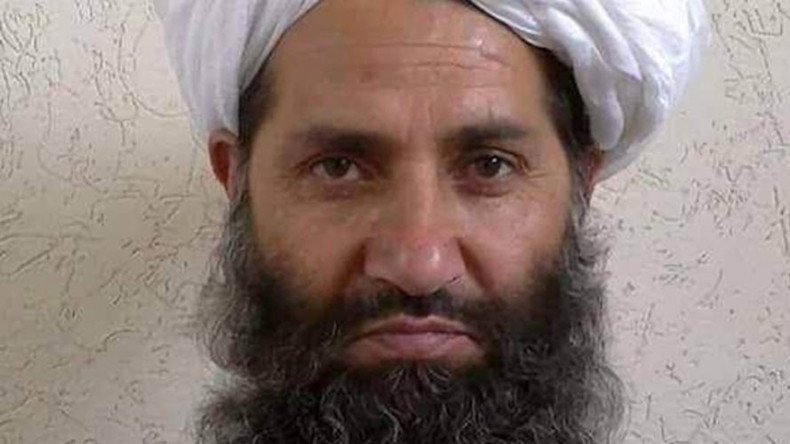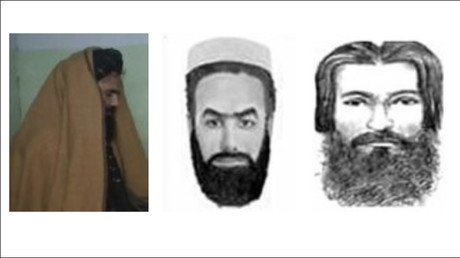Religious cleric appointed new Afghan Taliban leader after Mansour’s assassination

A senior religious cleric Haibatullah Akhunzada has been appointed successor to the Taliban’s leader Mullah Akhtar Mansour, who was killed in a recent US drone strike, as a compromise figure after the militant group’s council ruled out more radical candidates.
Haibatullah Akhunzada has taken over the reins of power of the Afghan-based Taliban insurgent group four days after a US drone attack targeted and, as was confirmed by the organization, killed its leader, Mullah Akhter Mansour in Pakistan’s Balochistan province, a statement issued on Wednesday said.
READ MORE: Taliban chief Mansour killed in US drone strike – Afghan officials
All the members of Taliban have pledged allegiance to Haibatullah who was declared the new Emir-al-Momineen (commander of the faithful), according to the statement cited by Reuters.
Akhundzada’s photo was posted on the Taliban’s official Twitter account accompanied by a capture of his newly-assumed full title of Emir-ul-Momineen Sheikh ul Quran, or “commander of the faithful, scholar of the Koran”.
Akhundzada, who is around 60, used to be the head of the Taliban courts and later served as deputy under Mansour. He comes from southern Afghanistan’s Kandahar region known as the Taliban’s spiritual heartland.
‘Pakistani intelligence behind rise of Taliban leaders’ (Op-Edge) https://t.co/7fn4QIuJmxpic.twitter.com/plvdjknmnG
— RT (@RT_com) May 22, 2016
Sirajuddin Haqqani, a military leader blamed for deadly attacks in Kabul, has been appointed Akhunzada’s first deputy. The role of the second deputy has been taken by Mullah Mohammad Yaqoob, son of Taliban founder Mullah Mohammad Omar.
“[Akhundzada] is of the older generation, he is one of the founders. So he has more respect as a religious scholar, while Sirajuddin Haqqani and Yaqoob, the son of Mullah Omar, are pretty young,” Thomas Ruttig of the Afghanistan Analysts Network said, as reported by Reuters.
Both deputies were ruled out as potential leaders, reportedly since the group was looking for a figure that could unite its disparate factions.
The candidacy of Haqqani, considered an utmost dangerous warlord, for the Taliban’s supremo raised high concerns among Russian Foreign Ministry officials. Haqqani formed his own militant group which, according to the US State Department, is linked to Al-Qaeda and is responsible for bombings in Afhanistan.
Haqqani being chosen an Taliban’s new chief would have been be the worst case scenario, the Russian president’s special representative for Afghanistan, Zamir Kabulov said, adding that he's “the most radical figure in their leadership.”
Since Akhunzada has always been a religious figure and never led troops in the field, Kabulov believes that all the military affairs of the organization will be in the hands of “well-known warlords” such as Haqqani. So it is naive to think that the terrorist group would be ready to immediately sit down for peace talks, Russia’s special envoy said, adding that the swift election of a new leader show Taliban was far from being in disarray.
Mere hours after the Taliban announced its new leader, a suicide blast attack on a bus full of judiciary department employees claimed 11 lives and injured 10 people in the Afghan capital of Kabul. According to a Taliban statement cited by Reuters, the attack was carried out as revenge for the government’s decision to execute six Taliban prisoners.













